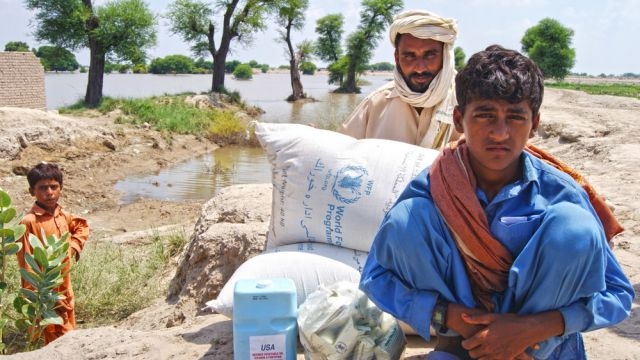UN agreement gives hope for climate migrants

Whether it is floods, droughts or hurricanes, communities facing climate change risks have gained vital protection after their plight has been recognised for the first time thanks to a global migration agreement.
The United Nations have agreed to develop an immigration contract to cope with millions of migrants moving from one country to another. Now, activists hope that countries can take concrete action.
The agreement considers climate change as a root cause of migration and outlines the ways in which countries and states respond to communities displaced by natural disasters and slow onset events such as drought, desertification and sea level rise.
Walter Kaelin, Chair of the Platform on Disaster Displacement, commented:
“On the one hand it's a real breakthrough. On the other hand it's just the beginning of a long and complex process. It's the first time the international community has recognised that migration and displacement can be caused by climate change disasters and has made specific commitments on how to address that.”
UN officials said the agreement was made after the European migration crisis in 2015, with the largest influx of refugees and migrants since the Second World War.
The crisis has placed strain on resources and created nationalist tensions. According to UN data, there are approximately 250 million people worldwide who are migrants, accounting for 3.4% of the global population.
Sven Harmeling, Head of Climate Change and Resilience Policy at aid group CARE International, said:
“After this compact, no one can say: ‘We don't see a relation between climate change and displacement and migration…But we'll have to see how fast and how many governments will sign up to this.”
According to UN officials, the non-binding agreements approved by all 193 member states, except the United States, are designed to make migration safe and orderly.
Hungary said on Wednesday that it would withdraw from the Global Compact for Safe, Orderly and Regular Migration before the final approval, saying the agreement was "a threat to the world."
Morocco will be formally adopted in December.
Although countries are not committed to achieving specific goals, such as the 2015 climate agreement, or the obligated to provide legal status for climate migrants, activists say that incorporating climate change into the agreement has placed the issue firmly on the global agenda.
Alex Randall from Britain's Climate and Migration Coalition commented:
“The aim of putting climate change in the text was to say: 'there are real connections between a warming planet and the movement of people and we need to be thinking about them.”
He added:
“It's definitely a step in the right direction. But we can't sit back and say this issue of climate-linked migration is solved. Signing the compact is part of a jigsaw but it isn't an answer on its own”
The World Bank said in March that unless urgent action is taken to curb global warming, 140 million people in Africa, Latin America and South Asia will be forced to migrate by 2050 to escape the effects of climate change.
Data from the UN indicates that since the late 19th century, the world's oceans have risen by 26 centimetres, due to melting glaciers and water expansion caused by climate change. Scientists predict that by 2100, the seas could rise by another metre.
The Climate Vulnerability Forum, an alliance of the countries most affected by climate change, said that a temperature increase of 2 degrees would lead to more frequent weather-related disasters and result in large population displacements.
In 2017, 18.8 million people were forced from their homes by storms, floods and other natural disasters.
Join us for the 10th Annual AIDF Global Summit to discuss global challenges such as climate change and displacement.
If you’d like to stay informed on the latest updates in aid and development, please sign up for the AIDF newsletter.
Image credit: WFP















